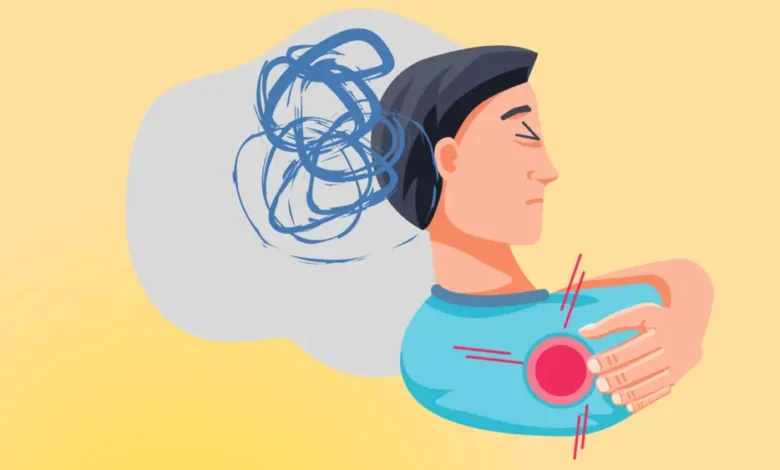Chronic Pain Psychologists: A Path to Mental and Physical Healing

Chronic pain is a debilitating condition that affects millions of people worldwide. While it’s often associated with physical ailments, such as arthritis, back pain, fibromyalgia, or nerve damage, chronic pain can also have a profound impact on mental health. The persistent discomfort and limitations that come with chronic pain can lead to depression, anxiety, stress, and feelings of helplessness. In Melbourne, chronic pain psychologists are playing a vital role in helping patients cope with both the physical and emotional aspects of this challenging condition. These specialists offer a multidisciplinary approach to managing chronic pain, providing effective psychological strategies to improve quality of life and promote long-term healing.
What is Chronic Pain?
Chronic pain is defined as pain that persists for three months or longer, often continuing long after the initial injury or underlying cause has healed. Unlike acute pain, which is a normal response to injury or illness, chronic pain can become a complex condition that affects not only the body but also the mind. The continuous nature of chronic pain can lead to reduced physical function, isolation, and emotional distress. In many cases, the cause of the pain may be difficult to identify, which can exacerbate feelings of frustration and helplessness.
For those living with chronic pain, managing the physical symptoms often becomes a full-time job. But in addition to physical treatments like medication or physical therapy, addressing the psychological aspects of chronic pain is equally important. This is where chronic pain psychologists in Melbourne play a critical role.
The Role of a Chronic Pain Psychologist
Chronic pain psychologists specialize in helping individuals manage the psychological challenges that come with persistent pain. They work closely with patients to develop coping strategies, improve emotional well-being, and teach techniques for managing stress and anxiety related to pain. Their expertise lies in addressing the mental and emotional components of pain, which can greatly influence the perception of pain and its impact on daily life.
These psychologists use evidence-based therapies, such as Cognitive Behavioral Therapy (CBT), Acceptance and Commitment Therapy (ACT), and mindfulness-based practices, to help patients reframe their thoughts and emotions around pain. The goal is not to eliminate the pain entirely but to reduce its impact on the patient’s life, improve functioning, and enhance overall well-being.
Common Techniques Used by Chronic Pain Psychologists
- Cognitive Behavioral Therapy (CBT) One of the most widely used therapeutic approaches for chronic pain is Cognitive Behavioral Therapy (CBT). CBT helps individuals identify and change negative thought patterns and beliefs that may be exacerbating their pain experience. For example, people with chronic pain may start to associate certain activities with increased discomfort and may begin to avoid them, leading to further physical deconditioning and emotional distress.
Through CBT, a chronic pain psychologist helps patients challenge these unhelpful thoughts and develop healthier, more balanced perspectives. This can lead to reduced pain perception, better coping strategies, and an improved quality of life.
- Acceptance and Commitment Therapy (ACT) Acceptance and Commitment Therapy (ACT) is another effective therapeutic approach for chronic pain. ACT encourages patients to accept the presence of pain rather than fighting against it. It teaches individuals how to focus on living a meaningful life despite the pain, rather than letting it dictate their actions and choices. Through mindfulness exercises and values-based living, ACT helps individuals regain a sense of control over their lives, even in the face of ongoing discomfort.
- Mindfulness and Relaxation Techniques Chronic pain psychologists often incorporate mindfulness and relaxation techniques to help patients manage stress and tension. Mindfulness involves focusing on the present moment without judgment, allowing patients to distance themselves from the negative thoughts and emotions that arise from pain. Relaxation techniques such as deep breathing exercises and progressive muscle relaxation can also help reduce the physical tension caused by pain, thereby lowering stress and anxiety.
- Biofeedback and Pain Management Techniques Some chronic pain psychologists also use biofeedback as part of treatment. Biofeedback involves teaching patients to monitor and control physiological functions, such as heart rate, muscle tension, and blood pressure, in response to pain. By learning to regulate these responses, patients can reduce the intensity of pain and improve their ability to manage discomfort in real-time.
The Benefits of Seeing a Chronic Pain Psychologist
- Improved Coping Skills One of the key benefits of seeing a chronic pain psychologist is the development of effective coping strategies. Rather than simply relying on medication to manage pain, patients learn ways to control their emotional responses, reduce anxiety, and minimize the impact of pain on their daily activities.
- Reduced Emotional Distress Chronic pain often leads to depression, anxiety, and feelings of hopelessness. A psychologist can help patients address these emotional issues, providing support and guidance in managing the psychological burden of chronic pain. This holistic approach can greatly improve mental health and overall well-being.
- Enhanced Quality of Life By addressing both the physical and psychological aspects of chronic pain, patients can experience a better quality of life. With improved coping strategies, patients may become more active, engage in social activities, and regain a sense of independence that may have been lost due to pain.
- Improved Pain Management Psychological interventions can actually help reduce the intensity of pain in some individuals. By changing negative thought patterns, increasing relaxation, and fostering a more positive mindset, patients may experience a reduction in pain perception. Additionally, patients who receive psychological support are more likely to stick with physical rehabilitation programs and adopt healthier lifestyle choices, which can further contribute to pain relief.
When to Seek a Chronic Pain Psychologist
It is important to consult a chronic pain psychologist if you are struggling with the emotional and psychological effects of living with pain. Signs that you may benefit from seeing a psychologist include:
- Increased feelings of frustration, sadness, or anxiety related to your pain
- Difficulty coping with everyday tasks due to pain
- A lack of motivation to engage in activities you once enjoyed
- Negative thought patterns that reinforce the pain experience
- Decreased quality of life due to pain-related limitations
Conclusion
Chronic pain is a complex condition that requires a multifaceted approach to treatment. While physical therapies and medications are essential for managing pain, the role of a chronic pain psychologist is equally important in helping individuals address the emotional and psychological aspects of their condition. Through evidence-based therapies and supportive techniques, chronic pain psychologists in Melbourne provide a pathway to improved mental and physical well-being. By combining psychological interventions with physical treatments, patients can regain control of their lives and learn to live more fully despite the challenges of chronic pain.




